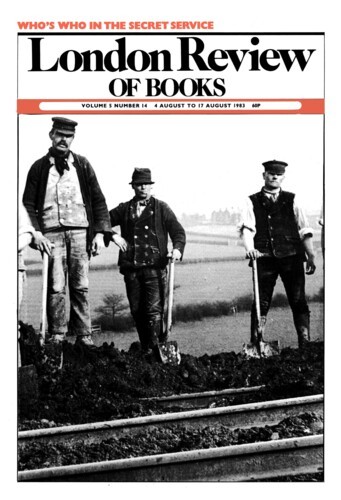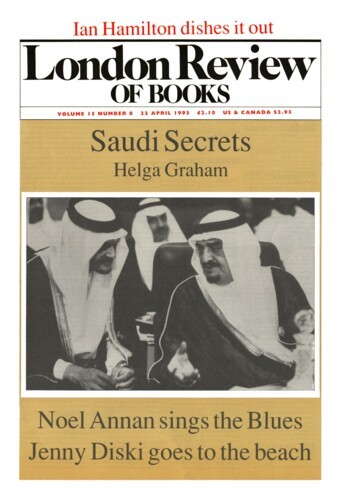Princes and Poets
Niall Rudd, 4 August 1983
In his immensely impressive book Dr Erskine-Hill shows how the example of Augustus was used as an inspiration, or as a warning, at every period from the Church Fathers to the end of the 18th century. Elizabeth’s reign had important Augustan features, but her court was not a source of literary patronage, and England did not occupy a central position on the international scene. James I saw himself as a potential Augustus; he encouraged Shakespeare, Jonson and Donne, and took a serious interest in religion; but he failed to assert British power abroad. Charles II was hailed as a new Augustus in panegyrics and on ceremonial arches, and it was in connection with his reign that the word ‘Augustan’ was first used of a cultural period. The comparison was developed by Higgons in 1726 but opposed by Warton and Hume, who argued that in taste and morals the age was far from Augustan. In the mid-18th century the debate became more complicated. Opponents of George II could use either the favourable ‘Velleian’ picture of Augustus as a contrast or the unfavourable ‘Tacitean’ picture as a comparison; many accounts of Augustus were ambiguous. But whether revered or reviled he remained a central point of reference.


